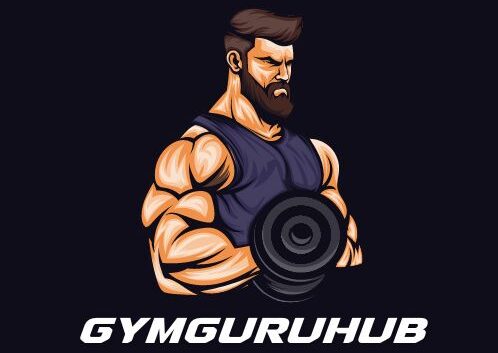Understanding The Basics Of Macronutrients For Fitness
Introduction:
Achieving and maintaining optimal fitness goes beyond just hitting the gym; it involves a holistic approach that includes paying attention to what you eat. The three main components of our diet, known as macronutrients or macros, play a crucial role in supporting overall health and fitness. In this article, we will delve into the basics of macronutrients and how understanding their role can empower you on your fitness journey.
- Proteins: The Building Blocks of Muscle
Proteins are the foundation of any fitness-oriented diet. They are composed of amino acids, which are essential for muscle repair, growth, and maintenance. Adequate protein intake is vital for individuals engaged in resistance training or any form of physical activity.
- Sources of Protein:
- Lean meats (chicken, turkey, lean beef)
- Fish and seafood
- Eggs
- Dairy products (Greek yogurt, cottage cheese)
- Plant-based sources (beans, lentils, tofu)
- Protein Requirements:
- The recommended daily protein intake varies based on factors such as age, gender, and activity level. On average, aiming for 0.8 to 1.2 grams of protein per kilogram of body weight is a common guideline.
- Carbohydrates: Your Body’s Primary Energy Source
Carbohydrates are the body’s preferred source of energy, making them crucial for individuals engaged in regular physical activity. They are broken down into glucose, providing the fuel necessary for both high-intensity and endurance exercises.
- Sources of Carbohydrates:
- Whole grains (brown rice, quinoa, oats)
- Fruits and vegetables
- Legumes (beans, lentils)
- Tubers (sweet potatoes, regular potatoes)
- Carbohydrate Timing:
- Consuming complex carbohydrates before a workout provides sustained energy, while simple carbohydrates post-workout aid in replenishing glycogen stores.
- Fats: Essential for Health and Performance
Contrary to the misconception that fats should be avoided, they are essential for overall health and play a crucial role in hormone production and nutrient absorption. Including healthy fats in your diet is crucial for sustained energy and optimal performance.
- Sources of Fats:
- Avocados
- Nuts and seeds
- Olive oil
- Fatty fish (salmon, mackerel)
- Coconut oil
- Balancing Fats:
- Aim for a balance of saturated, monounsaturated, and polyunsaturated fats. Limiting trans fats and highly processed fats is important for heart health.
- Caloric Balance: Finding Your Sweet Spot
Understanding macronutrients goes hand in hand with maintaining a caloric balance. Whether your goal is weight loss, muscle gain, or maintenance, the calories you consume should align with your objectives.
- Calculating Caloric Needs:
- Use online calculators or consult with a nutritionist to determine your daily caloric needs based on factors like age, weight, activity level, and fitness goals.
- Macronutrient Ratios:
- Adjust the proportion of macronutrients based on your goals. For instance, individuals focusing on muscle gain may increase protein intake, while those prioritizing weight loss might adjust their carbohydrate and fat ratios.
- Hydration: The Unsung Hero
While not a macronutrient, proper hydration is integral to any fitness plan. Water plays a vital role in nutrient transportation, temperature regulation, and overall bodily functions.
- Hydration Tips:
- Drink water consistently throughout the day.
- Consider your activity level; intense workouts may require increased fluid intake.
- Monitor urine color as a simple indicator of hydration status.
FAQs: Understanding the Basics of Macronutrients for Fitness
Q1: Why are macronutrients important for fitness?
- A1: Macronutrients provide the essential building blocks and energy required for muscle repair, growth, and overall physical performance. They play a vital role in supporting various physiological functions crucial for fitness enthusiasts.
Q2: How can I determine my daily protein requirements?
- A2: Protein needs vary based on factors like age, gender, and activity level. As a general guideline, aim for 0.8 to 1.2 grams of protein per kilogram of body weight. Adjust based on your fitness goals and consult with a nutritionist for personalized advice.
Q3: Are carbohydrates necessary for a fitness-oriented diet?
- A3: Yes, carbohydrates are the body’s primary energy source, making them crucial for individuals engaged in physical activity. Opt for complex carbohydrates from whole grains, fruits, and vegetables to support sustained energy levels.
Q4: How can fats contribute to fitness and overall health?
- A4: Healthy fats are essential for hormone production, nutrient absorption, and sustained energy. Include sources like avocados, nuts, and fatty fish in your diet, and aim for a balanced intake of saturated, monounsaturated, and polyunsaturated fats.
Q5: How do I find my caloric balance for my fitness goals?
- A5: Determine your daily caloric needs using online calculators or consult with a nutritionist. Adjust macronutrient ratios based on your specific goals, whether it’s weight loss, muscle gain, or maintenance.
Q6: Can I still enjoy a balanced diet while following a specific fitness plan?
- A6: Yes, a balanced diet is key to overall health and fitness. Tailor your macronutrient intake to align with your fitness goals, but ensure you include a variety of foods to meet your body’s nutritional needs.
Q7: How important is hydration in a fitness routine?
- A7: Hydration is integral to any fitness plan. Water supports nutrient transportation, temperature regulation, and overall bodily functions. Drink water consistently throughout the day, considering your activity level, and monitor urine color as a simple indicator of hydration status.
Conclusion:
In conclusion, a fundamental understanding of macronutrients is paramount for anyone embarking on a fitness journey. Proteins, carbohydrates, and fats are not only sources of energy but also essential for various physiological functions that contribute to overall well-being. By tailoring your macronutrient intake to align with your fitness goals, you can optimize your performance, support muscle growth, and enhance your overall health. Remember, achieving and maintaining fitness is not a one-size-fits-all approach, so experiment, listen to your body, and make adjustments as needed to find what works best for you.

